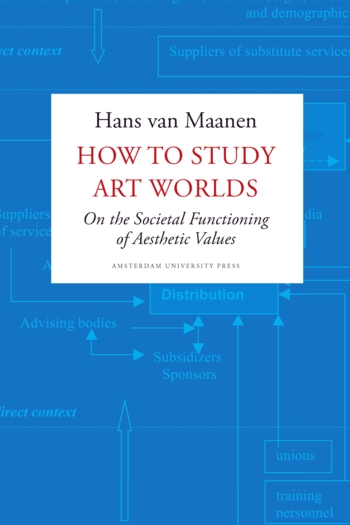Bruno Latour, Vincent Antonin Lépinay: The Science of Passionate Interests: An Introduction to Gabriel Tarde’s Economic Anthropology (2009)
Filed under book | Tags: · capitalism, economics, economy, politics, socialism, sociology

“How can economics become genuinely quantitative? This is the question that French sociologist Gabriel Tarde tackled at the end of his career, and in this pamphlet, Bruno Latour and Vincent Antonin Lépinay offer a lively introduction to the work of the forgotten genius of nineteenth-century social thought. Tarde’s solution was in total contradiction to the dominant views of his time: to quantify the connections between people and goods, you need to grasp “passionate interests.” In Tarde’s view, capitalism is not a system of cold calculations—rather it is a constant amplification in the intensity and reach of passions. In a stunning anticipation of contemporary economic anthropology, Tarde’s work defines an alternative path beyond the two illusions responsible for so much modern misery: the adepts of the Invisible Hand and the devotees of the Visible Hand will learn how to escape the sterility of their fight and recognize the originality of a thinker for whom everything is intersubjective, hence quantifiable.
At a time when the regulation of financial markets is the subject of heated debate, Latour and Lépinay provide a valuable historical perspective on the fundamental nature of capitalism.”
Publisher Prickly Paradigm Press, Chicago, 2009
Volume 37 of Paradigm
ISBN 0979405777, 9780979405778
100 pages
PDF (updated on 2020-7-13)
Source notes (added on 2012-8-1)
Hans van Maanen: How to Study Art Worlds: On the Societal Functioning of Aesthetic Values (2009)
Filed under book | Tags: · actor-network theory, aesthetics, art theory, sociology, sociology of art

“This study brings together the organisational side of the world of the arts and the understanding of the many functions art fulfills in our culture. The author sets out to establish how the organisation of art worlds serves the functioning of the arts in society. The book is divided into three sections, the first of which presents a comparative study of approaches to the art world as practiced by Dickie, Becker, Bourdieu, Heinich, and Luhmann, among others. The second part focuses on the philosophical debates concerning ‘aesthetic experience’. Besides Kant, scholars such as Gadamer, Foster, Shustermann, Schaeffer and Carroll come to the fore. In the third part, the author traces the consequences of these theoretical approaches for the organization of art world practices.”
Publisher Amsterdam University Press, 2009
Creative Commons BY-NC 3.0 License
ISBN 9089641521, 9789089641526
311 pages
PDF, PDF (2 MB, updated on 2016-7-18)
Comment (0)Theodore Roszak: The Making of a Counter Culture: Reflections on the Technocratic Society and Its Youthful Opposition (1969)
Filed under book | Tags: · 1960s, counterculture, gestalt theory, hippies, new left, social movements, sociology, technocracy, technological society, technology, youth

When it was published, this book captured a huge audience of Vietnam War protesters, dropouts, and rebels – and their baffled elders. Theodore Roszak found common ground between 1960s student radicals and hippie dropouts in their mutual rejection of what he calls the technocracy – the regime of corporate and technological expertise that dominates industrial society. He traces the intellectual underpinnings of the two groups in the writings of Herbert Marcuse and Norman O. Brown, Allen Ginsberg and Paul Goodman. Alan Watts wrote of The Making of a Counter Culture in the San Francisco Chronicle in 1969, “If you want to know what is happening among your intelligent and mysteriously rebellious children, this is the book. The generation gap, the student uproar, the New Left, the beats and hippies, the psychedelic movement, rock music, the revival of occultism and mysticism, the protest against our involvement in Vietnam, and the seemingly odd reluctance of the young to buy the affluent technological society – all these matters are here discussed, with sympathy and constructive criticism, by a most articulate, wise, and humane historian.”
Publisher Anchor Books, Doubleday, New York, 1969
303 pages
The Making of a Counter Culture (English)
El nacimiento de una contracultura (Spanish, trans. Angel Abad, 1970/1981, added on 2013-7-2)

